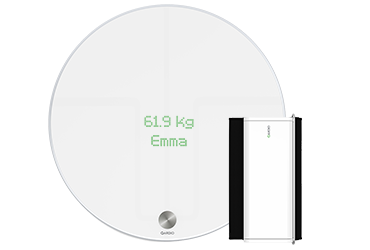Living a heart healthy lifestyle, or eating a heart-healthy diet is something that isn’t just good for the older members of the family, but can have life long benefits for those of all ages. Introducing heart-healthy habits into your family routine can have a lasting impact on your children’s health, and it can all start with a few small, simple changes. With the kids back at school and the holidays over, there has never been a better time to start.
Healthy snacks
One of the easiest healthy habits to introduce to your children and into your family routine is heart-healthy eating. Switching out your kid’s favourite junk food snack for a nutritious alternative is a great first step. If your children like something sweet, raspberries or strawberries are great substitutes, whereas if they prefer something with a crunch homemade non-salted popcorn could satisfy their snacking needs. Encouraging children to choose and enjoy healthier food options from a younger age will help them to create healthy habits that will hopefully stick with them throughout their life.
Healthy meals
Adding healthy foods into your weekly meal plan is also a great way for your whole family to stay heart healthy. The American Heart Association (ASA) recommend fresh fruits and vegetables, with five a day being a great starting point. Foods with low saturated fats, low trans fats and foods with high fibre, which can all help to prevent high cholesterol, are also recommended. Limiting salt intake, whether this is in processed foods or in-home cooking can help to reduce the risk of high blood pressure for all members of the family.
Screen time
Reducing the number of passive activities your children take part in is also a great way to help them be heart healthy. In recent years, watching tv, playing computer games or scrolling on tablets has become the main form of passive activity that children take part in. The CDC recommends that children over the age of 2 should watch a maximum of 2 hours of TV a day. Rather than setting up strict timers or schedules to monitor this, creating fun engaging activities for you and your children to do as an alternative can help to avoid defaulting to watching TV becoming a daily habit. Planning outdoor or indoor activities that help keep your child’s mind or body active, such as ball games, crafts, board games, drawing or team sports.
Exercise and play
It is recommended that children need around 60 minutes of exercise a day, and if maintained is something that can positively impact their mental, physical and heart health into adulthood. Linking exercise to play is a great way to bring fun into something that many children can view as a chore. Play allows children to “use their creativity while developing their imagination, dexterity, and physical, cognitive, social, and emotional strength.” Introducing children to a range of sports from a young age can give them the opportunity to find one they enjoy and can continue on with. Taking part in physical play activities as a group is something that can help the heart health of all members of the family. Creating positive, healthy exercise habits for school-aged children can lower the risk of them developing chronic illnesses, such as high blood pressure in later life.
Ensuring that heart-healthy habits are a key part of your family’s lifestyle is a great way to maintain strong healthy hearts in your children, and your family as a whole. You do not have to make lots of big changes all at once to introduce heart-healthy activities into your routine, lots of small, simple changes can lead to big change over time that will help your family and their health, for years to come.
Guest post by Kaylin, a member of the team at OnCallCentral, a medical answering service for doctors. Kaylin loves to write on medicine and health-related topics.
Sources:
Centre for Disease Control
The Importance of Play in Promoting Healthy Child Development
Healthy Kids
Reconnecting Kids with Nature
Tips to Keep Kids Healthy


